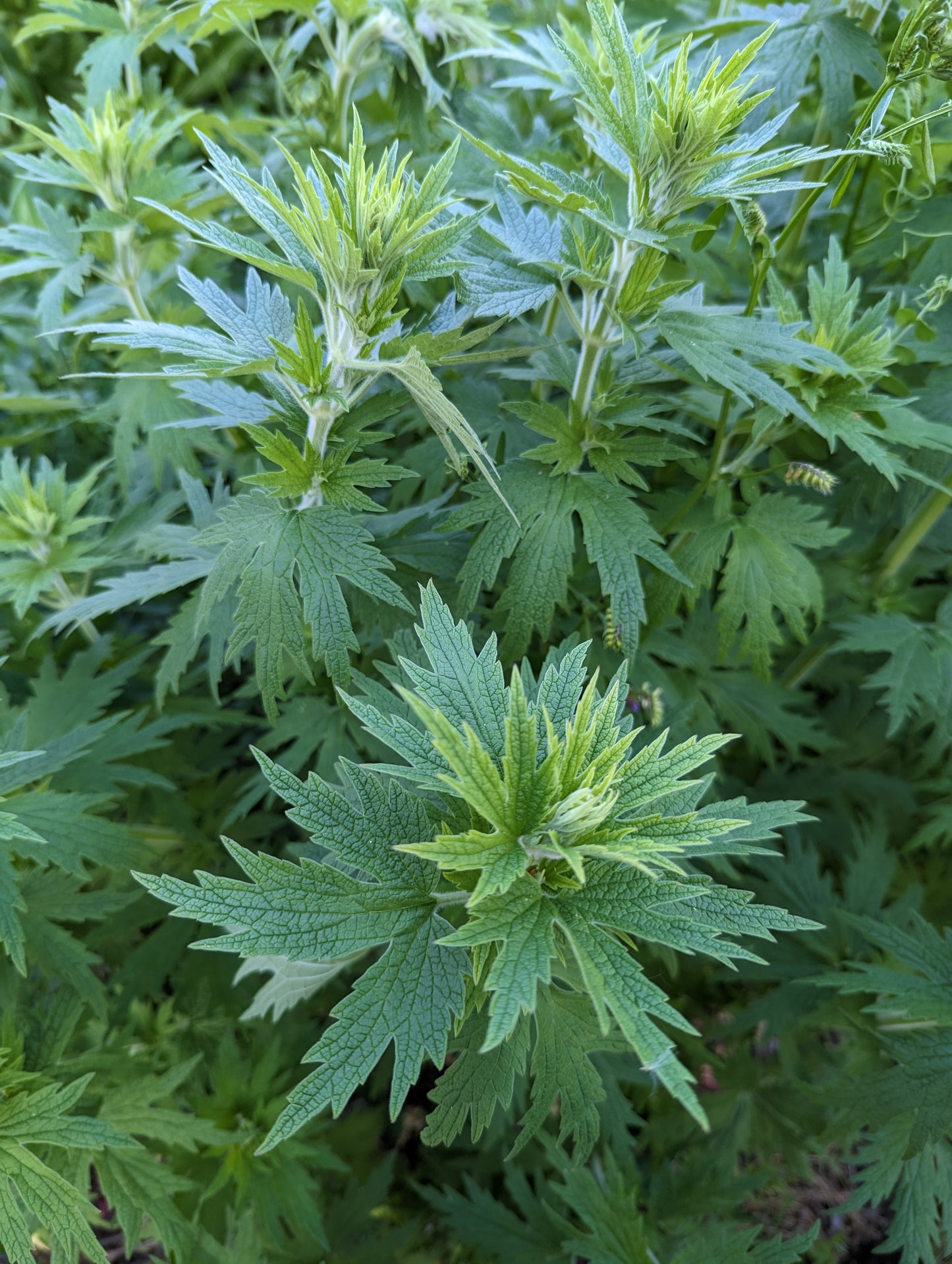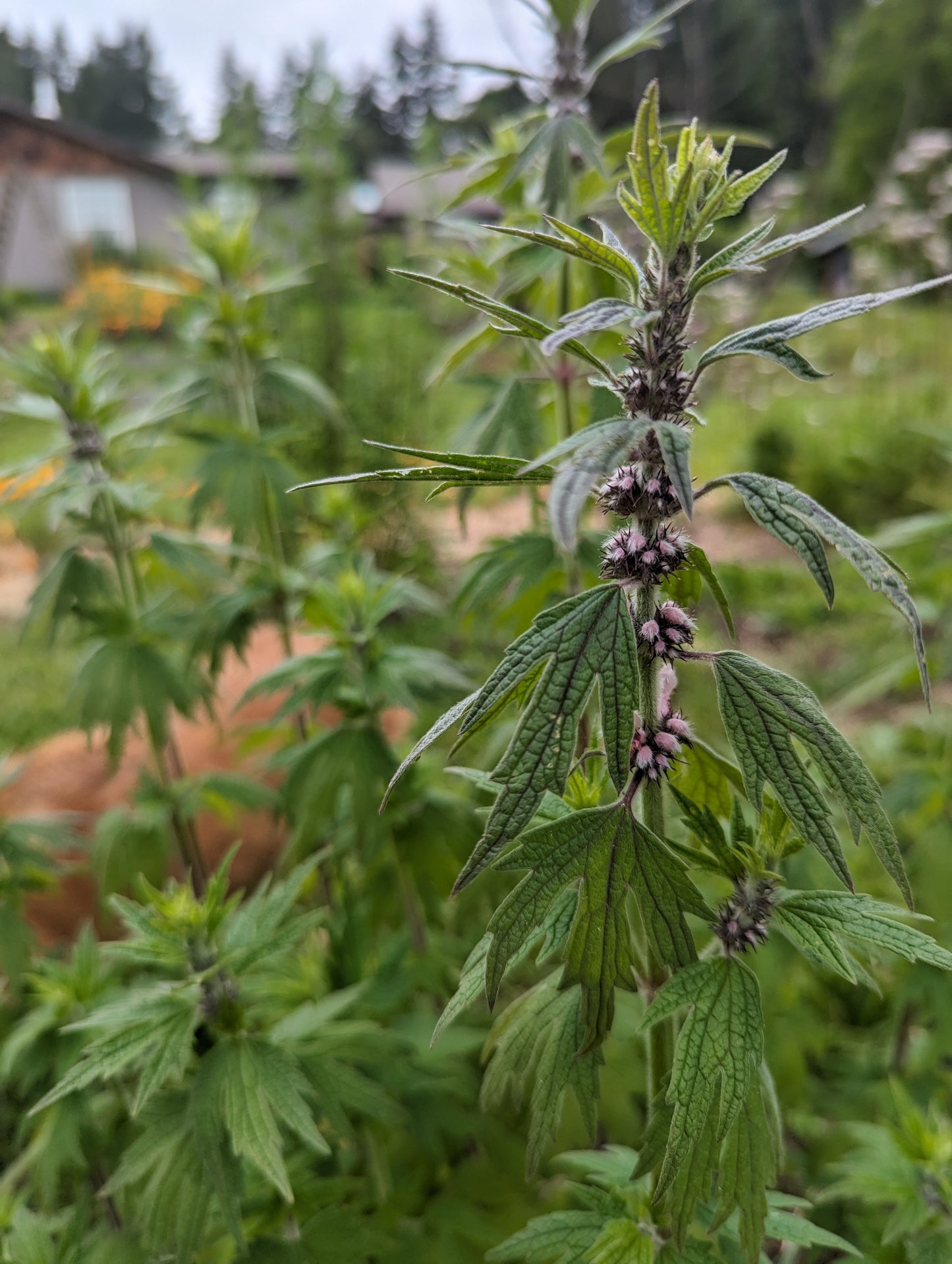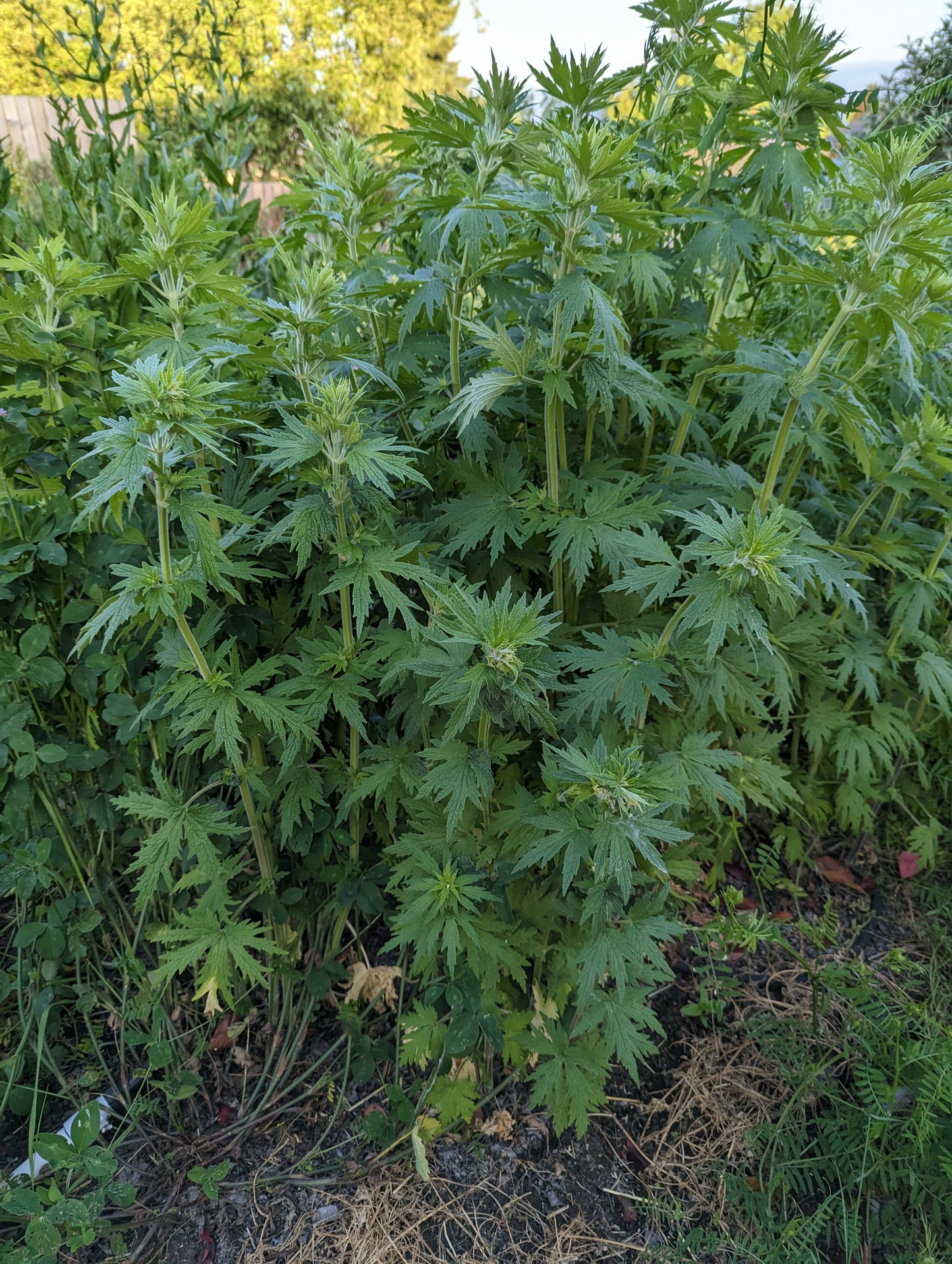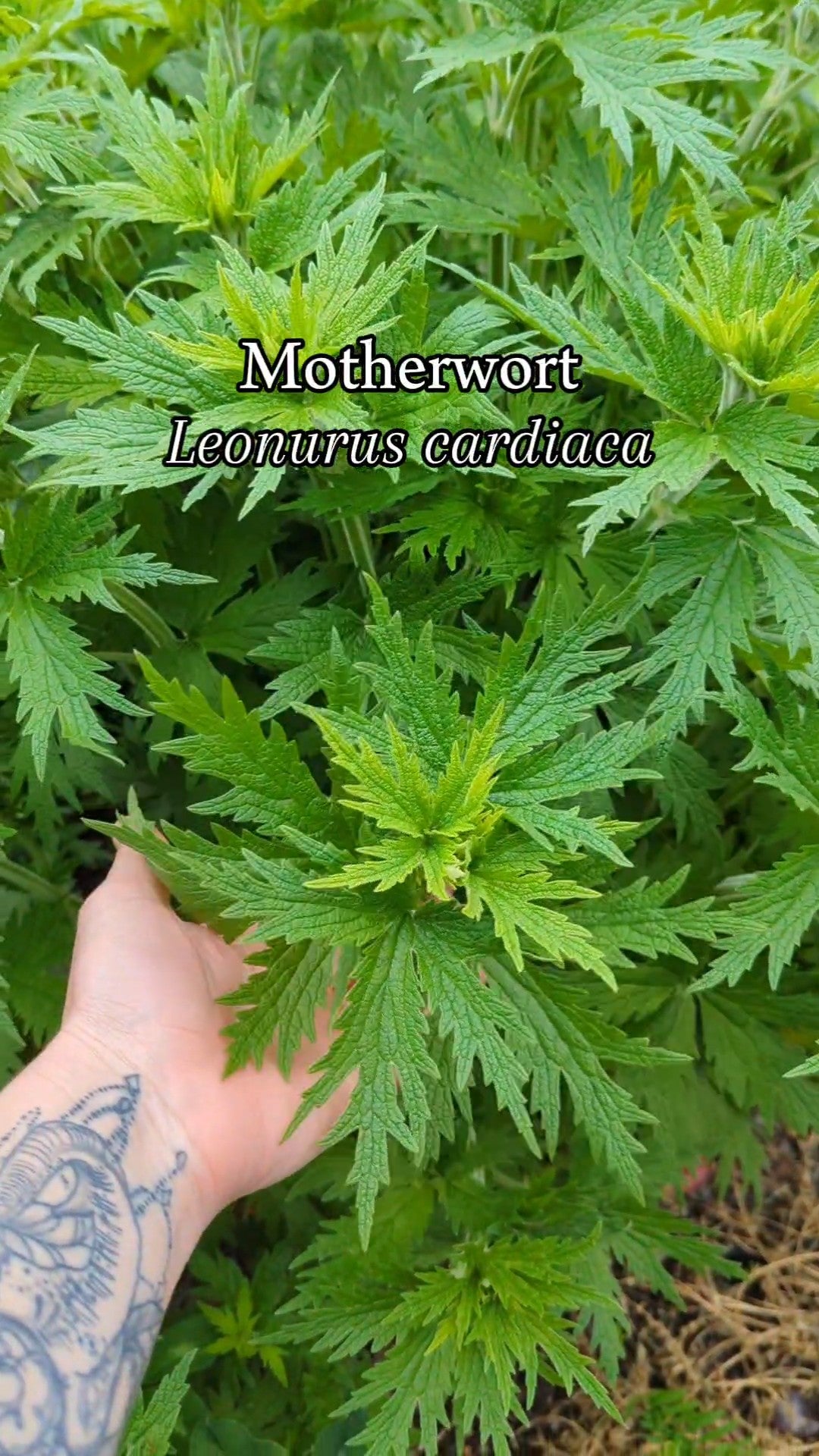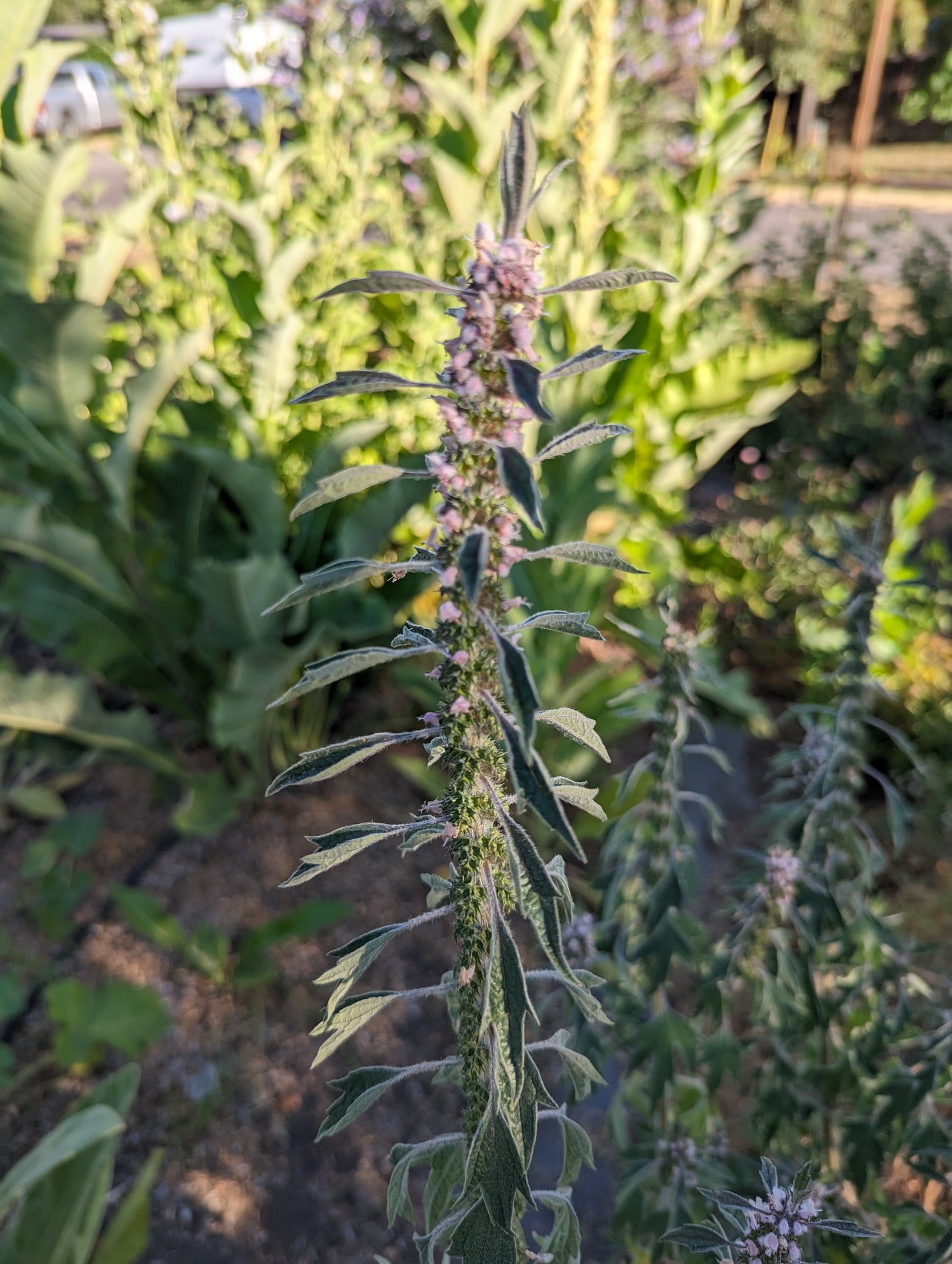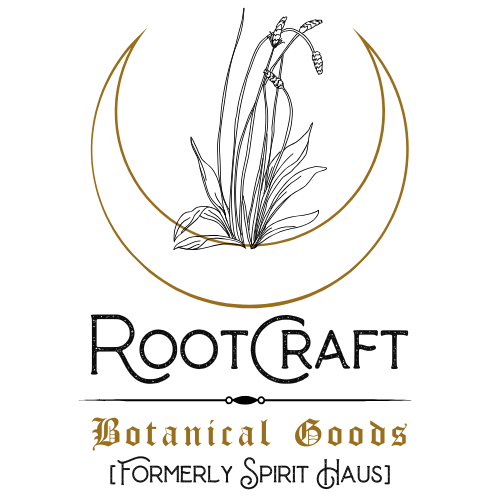Motherwort Seeds | Leonurus cardiaca
Motherwort Seeds | Leonurus cardiaca
Couldn't load pickup availability
Also called Lion’s Ear or Lion’s tail, Motherwort's genus name, Leonurus (stemming from the Latin word for lion) may come from her soft fuzzy stem and leaves. The species name cardiaca comes from Motherwort’s affinity for the heart, while the suffix -wort was historically used to refer to any herb.
Mother’s Herb is a fitting name for this plant with affinities for the cardiovascular, reproductive, endocrine, and nervous systems. Often worked with for softening the heart to ease anxiety and tension, while simultaneously strengthening it and the reproductive system.
Motherwort is in the mint family and, like many of her relatives, can spread easily via rhizomes and seeds.
Approximately 50 seeds, harvested for 2025.
Grown using only compost, water, & organic fertilizer, our plants are never treated or sprayed with anything at all.
Lifecycle: Perennial
Zones: 3-8
Region: Native to central Asia
Actions: Nervine, emmenagogue, antispasmodic, hepatic, bitter, cardio tonic, hypotensive.
Parts used: Leaf & flower
Planting: Sow in the fall or early spring, barely cover seed with soil, tamp securely and keep evenly moist until germination. Direct seed in the garden or work up in pots.
Spacing: 12-24"
Location: Motherwort is a flowering plant that can grow up to 5 feet tall and prefers part shade to full sun, regular garden soil and plenty of water
Germination: 1-3 weeks
Our Seeds
The majority of our seeds offered are saved from our small medicinal plant farm right here in the Cascade foothills of Oregon's Willamette Valley.
Our plants are grown only with water, compost, & organic fertilizer. Never sprayed with herbicides, pesticides, synthetic fertilizers, or anything else.
There are some seeds that we have not been able to harvest in abundance ourselves yet, so these are provided by a farm here in Oregon that is certified organic by the USDA and Oregon Tilth.
Important
Always check with local authorities (such as your county extension) to see if non-native plants are invasive or noxious in your region.
Noxious plants are illegal to grow and cannot be shipped across state borders. Invasive species should never be intentionally planted, but should be harvested from the wild instead.
They may hold medicinal value but they can destroy native ecosystems and habitats. There are likely less destructive alternatives with similar medicinal value that you can plant.
